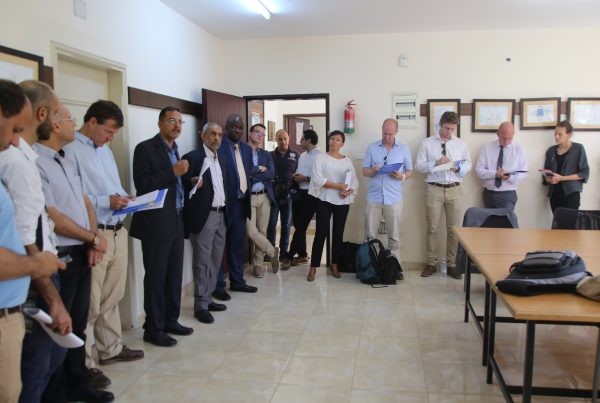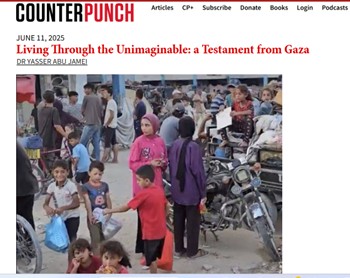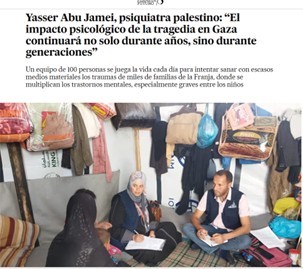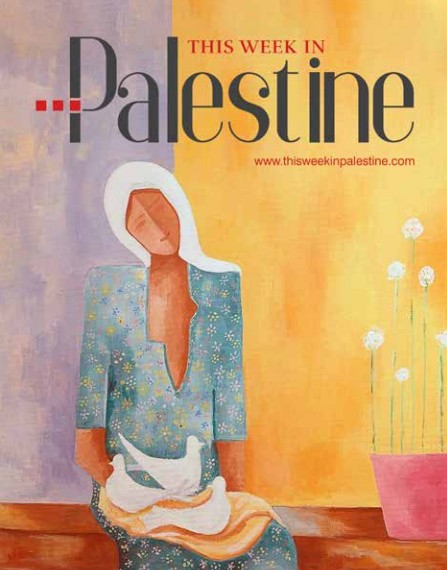
“A high-level delegation from the United Nations Office for the Coordination of Humanitarian Affairs (OCHA) visits the Gaza Community Mental Health Programme”
June 14th, 2018
A high-level delegation from the United Nations Office for the Coordination of Humanitarian Affairs (OCHA) visits the Gaza Community Mental Health Programme to acquire updates on the Psychological and Economic conditions in the Gaza Strip
A high-level delegation of diplomats and donors in coordination with the United Nations Office for the Coordination of Humanitarian Affairs in the Palestinian Territories (OCHA), visited the Gaza Community Mental Health Programme (GCMHP). The delegation included representatives of the Protection Group at the Office of the High Commissioner for Human Rights (OHCHR) of the Child Protection Sector of UNICEF and Ma’an Development Center. Further, Dr. Yasser Abu Jamei, Director General of GCMHP and a number of heads of departments and units received the delegation and presented the conditions that Palestinians live in the Gaza Strip after the marches and demonstrations which started on March 30th.
At the beginning of the meeting, Mr. Hamada Al-Bayari, the representative of OCHA welcomed the guests and turned the floor over to Ms. Yeni Antilla, the representative of the Protection Sector at OHCHR to discuss the absence of the international protection which has deteriorated in the last months due to the violence of demonstrations near the borders which began on March 30th.
Mr. Matthew Dalling, Child Protection Officer of UNICEF – at the Gaza Strip, highlighted the efforts of UNICEF and its cluster groups in the psychosocial support and child protection fields during the recent incidents in the Gaza Strip. He also reviewed the problems faced the children in the Gaza Strip in general.
Moreover, Mr. Housam Al-Madhoun, Director of Family Centers at Ma’an Development Center presented the social and psychological situation of the children and their families due to the recent incidents in the Gaza Strip, the problems related to meeting the needs of the child protection and the most important challenges faced by family centers during their work in the governorates of the Gaza Strip. He indicated to scarcity of funds which contributed to the inability of local institutions to meet the growing needs of the community under the circumstances where the people are unable to cope with these difficult circumstances.
Dr. Abu Jamei conferred on the difficult economic and political conditions experienced by the population of the Gaza Strip, and the social and psychological impact of the imposed siege on the Gaza Strip for years among the population. He also pointed out the crises that Palestinians are experiencing which are electricity shortage, unemployment, poverty and salaries cuts and their impact on the Palestinian community, in addition to other difficult examples and conditions which negatively affect all aspects of life including sectors of health and education, and others.
In addition, Dr. Abu Jamei tackled the psychological and social repercussions and effects of the recent incidents related to the demonstrations and marches on the borders and in the return camps, which resulted in more than 13,000 injuries and the killing of more than 100 civilians, including children, women, besides medical personnel and journalists. Dr. Abu Jamie carried with explaining the impact of these incidents in the increasing number of injuries and disabilities followed by the further exacerbation of the humanitarian conditions of the population in the Gaza Strip who are already vulnerable due to the political and economic conditions.
Dr. Abu Jamei added about the current response to the crisis and the OCHA emergency intervention project, which aims to the strengthening of the protection mechanisms through providing the mental health and psychosocial services to the affected people of the current crisis in the border areas of the Gaza Strip. He presented the interventions implemented by the project that included the provision of first aid services by the GCMHP’s field teams through visiting the affected people’s families at their houses, and the provision of psychosocial support and mental health services through six field clinics and three community centers located at all Gaza governorates, in addition to the awareness and educational activities that include employing publications such as brochures, billboards, radio spots, and other, . Eventually, Dr. Abu Jamei stressed on the urgent need for such interventions amidst the current conditions.
At the end of the meeting, a Palestinian family from the Gaza Strip, whose three members suffered from different injuries as a result of their participation in the demonstrations, talked about their economic deteriorating conditions that prevent them to afford the required treatment, besides the challenges they have been facing to coordinate a medical referral out of Gaza for one of the injured. The mother elaborated about her children’s injuries which contributed to the loss of the family income source. She presented some of the psychological problems that began to appear among her injured children such as nervousness, anxiety and depression. She demanded the international community to help her children, all the injured, and the affected people the Gaza Strip as soon as possible. The delegation raised some questions to the family in regard to the problems and challenges that the affected Palestinian families encounter.
At the end of the visit, the delegation thanked GCMHP and the participants for their exerted efforts in contributing to alleviating the suffering of the people in the Gaza Strip.




Read Comments
Steven Rich
March 10, 2019Omnis iste natus error sit voluptatem accusantium nam libero tempore, cum soluta nobis est eligendi optiocumque nihil impedit quo minus id quod maxime.
Van Wimbilton
March 10, 2019Natus error sit voluptatem accusantium nam libero tempore, cum soluta nobis eligendi optio cumque nihil impedit quo minus id quod maxime.